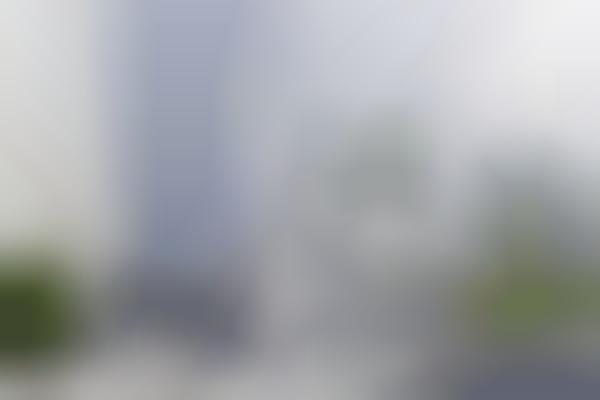بسم الله الرحمن الرحيم
والصلاة والسلام على رسوله الكريم
والعاقبة للمتقين
From time to time I hear
stories of converts to Islam having to hide their new faith from their family.
Apparently, some find themselves having to offer their Salat in the bathroom.
These individuals may be excused for ignorance of the fact that it is strictly
forbidden to offer the Salat in certain places that are unfit for it,
among them, the Hammam (bathroom). Some other Muslims offer their Salat
and organize the Friday services in churches and Christian chapels, claiming
that their localities do not have sufficient prayer space, either because there
is no mosque or the mosque is too small. There is no problem in doing this
provided the churches or chapels are absolutely free of any images, icons,
statues, idols, etc. The same rule obviously applies to praying in a Jewish
synagogue, which are usually free of images anyways. Likewise there is no
problem in praying in the mosque or place of worship of different misguided
sects like the Shi’a, although praying behind an imam of a deviant sect is a
more nuanced issue. The Prophet of Allah ﷺ proclaimed that all the Earth
is a masjid, meaning fit for prostrating upon and offering the Salat.
However, this is a general statement. In some narrations, the Prophet ﷺ made
important exceptions:
الأَرْضُ كُلُّهَا مَسْجِدٌ
إِلاَّ الْمَقْبُرَةَ وَالْحَمَّامَ
All the Earth is a masjid
except the cemetery and the bathroom. (Jami al-Tirmidhi)
Both the cemetery and
bathroom are places which are unfit to offer the Salat, which is an extremely
sacred act of worship. In another Hadith:
أَنَّ رَسُولَ اللَّهِ صلى الله
عليه وسلم نَهَى أَنْ يُصَلَّى فِي سَبْعَةِ مَوَاطِنَ فِي الْمَزْبَلَةِ وَالْمَجْزَرَةِ
وَالْمَقْبُرَةِ وَقَارِعَةِ الطَّرِيقِ وَفِي الْحَمَّامِ وَفِي مَعَاطِنِ الإِبِلِ
وَفَوْقَ ظَهْرِ بَيْتِ اللَّهِ
Allah’s Apostle ﷺ
prohibited Salat from being performed in seven places: (1) in the dung heap,
(2) in the slaughtering area, (3) in the cemetery, (4) in the commonly used
road, (5) in the bathroom, (6) in the camels’ resting area, (7) and above the
House of Allah. (Jami al-Tirmidhi #346)
Incidentally, the fact
that it is forbidden to pray in the dung heap and the slaughtering area is a
proof for the impurity of the dung and blood of even those animals which are
eaten, the well known ruling of the Hanafi school, and Allah knows best. Such
places may also be filled with a foul odour and are generally not held in high
regard by the innate disposition and hence are not worthy of being places of worship.
It is forbidden to pray in the cemetery for the purpose of cutting off all
avenues that can possibly lead toward grave worship. The reason grave worshipers
build places of worship over graves, converting them into tombs where they
offer Salat, is because they hold such places to be holy and sacred, when in
fact they are not. A mosque or place of worship is meant to be dedicated to
Allah alone. To build a place of worship or shrine at the grave of someone is
to elevate the person therein to a status of a “demigod”, even if the Salat
offered at the tomb is directed to Allah. The Prophet ﷺ forbade offering
the Salat in the commonly used road perhaps to avoid causing trouble and
inconvenience to the people, because doing so would obviously create disorder
and fear of the worshiper being trampled upon. Hence the one who offers Salat
in such a place does not do so with the tranquility that is required of him. The
bathroom or toilet area is another place where it is forbidden to offer Salat,
because they are places where people relieve themselves, and it is definitely
not befitting to offer such a sacred act of worship there. Regarding forbidding
praying Salat in camel pens, it should be noted that the Prophet ﷺ
permitted offering the
Salat in a sheep pen. In some narrations, the Prophet ﷺ has
described the camel as a “devil”, and that the Bedouin tribes of Najd and in
the eastern direction, who are the people of camels, are arrogant and
hard-hearted people, unlike the people of Yemen who are herders of sheep and
goats, and are described by him ﷺ as being full of faith and
tender hearted. Incidentally, while camel meat is halal according to our
Shari’a, it was forbidden in the Mosaic law. This perhaps explains why,
although it is allowed to eat camel meat for us Muslims, by eating camel meat
one’s wudu is nullified. This appears to be some kind of acknowledgment
that in the previous, abrogated Shari’a camel meat was forbidden, but in the
gracious Shari’a of Muhammad ﷺ the prohibition has been
lifted. Thus the nullification of wudu for eating camel meat is meant to remind
one of this grace, or else meant to indicate that some sort of price is
required for eating camel meat which would be the refreshing of one’s wudu.
Finally, the last of the seven places where it is forbidden to offer Salat is
atop the sacred Ka’ba. This is for the obvious reason that one who prays on top
of the Ka’ba is not facing it, whereas facing the Qibla is an essential
requirement for the validity of Salat. Although not mentioned in the preceding
Hadith, there is some reason to hold that in addition to these seven places it
is forbidden to offer the Salat in certain places where the wrath of Allah
descended, such as Babylon, as the latter is cursed. In a narration attributed
to the Amir al-Mu’minin Ali b. Abi TalibRA:
إِنَّ حَبِيبِي صلى الله عليه
وسلم نَهَانِي أَنْ أُصَلِّيَ فِي الْمَقْبُرَةِ وَنَهَانِي أَنْ أُصَلِّيَ فِي أَرْضِ
بَابِلَ فَإِنَّهَا مَلْعُونَةٌ
“My Beloved ﷺ
prohibited me from
praying in a cemetery and he prohibited me from praying in the land of Babylon,
for verily it is cursed.” (Sunan Abi Dawud #490).








No comments:
Post a Comment